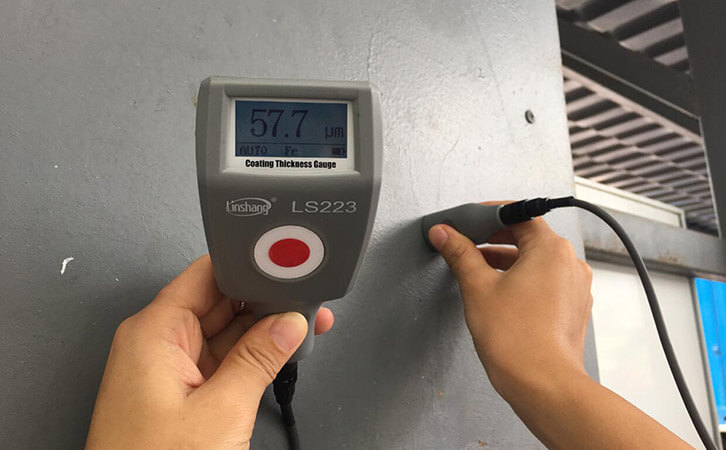Paint Film Thickness Detector Used in Aviation Industry
With the continuous development and growth of the aviation industry, it has now developed to a point where the technology is stable. However, as a high-altitude operation, of course everything should be based on safety. Take the civil airliner that we travel daily as an example. The aircraft carrying people who are busy in the air must have almost full marks on the safety factor. The most common safety measure is the coating on the aircraft surface. Paint film thickness detector also has an inseparable relationship. Although the shell of the aircraft has sufficient hardness and thickness, it will always be eroded by these things after a long flight. In addition to what we can see with the naked eye, friction with air at high speeds can also cause long-term temperature rises.
In addition to the anti-corrosion function, this coating needs to be equipped with functions such as wear resistance, heat resistance and excellent adhesion. In addition to the protection of the radar surface, the coating on the aircraft radar can also transmit radar waves and prevent static electricity. At present, the coatings on the exterior of aircraft are generally made of nano-composite coatings. At present, the best coatings for aircraft exteriors that can meet the above conditions.
The above are just the outer coatings of general civil airliners and some special aviation fields will use more powerful outer coatings. Just like a military fighter, the world's fastest supersonic fighter can now fly in the air at seven times the speed of sound. Such an amazing speed will rub against air and dust. The outer layer of the fighter will wear more; Some sea-air fighters, in addition to encountering the original abrasion in the air, also need to reach the ocean at the risk of being corroded by seawater. Generally, the above-mentioned fighters will use more advanced coatings than nano-coatings.
What's more, there are satellite rockets in the aviation industry, which need to pass through a period of high-strength friction when passing through the atmosphere. The environment encountered in space will be even worse. The side of the satellite facing away from the sun can reach -100 degrees Celsius and face the sun. Aerospace special coatings will be used in such a special environment, but all of this is inseparable from the standard detection of the paint film thickness detector.
Since the paint film thickness detector covers such a wide area in this field, what kind of advantages does it have? Linshang Technology LS223 paint film thickness detector is a high precision paint thickness measuring instrument used to test paint thickness. Let's see what's the advantages.
The paint film thickness detector has simple operation. And it needs no frequent calibration just simple zero adjustment.
Using ruby probe, which is corrosion resistant, wear resistant and durable.
In Fe/Nfe mode, the material can be quickly recognized and automatically converted.
Using digital probe technology, it is not easy to be affected by external interference and affect the measurement results.
The portable paint film thickness detector adopts the split design and can also transfer the probes of different ranges according to the needs.
In addition to the importance of the paint film thickness detector in the automotive industry, it is not to be underestimated in the aviation field.
- High precision coating thickness gauge for used car
- Automotive paint protection films coating thickness gauge
- Plating Thickness Measuring Instrument for Detecting Anti-corrosion Coating
- Linshang LS220, LS191, LS160A– Necessary for Car Cover Inspection
- Coating Thickness Gauge for Second Hand Vehicle
- Zero Adjustment Step of Coating Thickness Gauge
